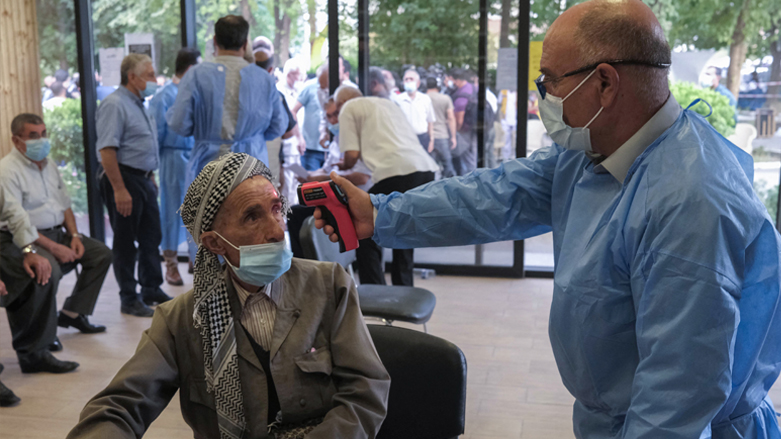KRG issues new COVID-19 measures as global surge continues

ERBIL (Kurdistan 24) – The Kurdistan Regional Government's (KRG) Supreme Committee to Combat COVID-19 on Tuesday issued new measures to curb the spread of the highly contagious disease, including a vaccine passport system.
The new restrictions came after the body held a meeting chaired by Minister of Interior Rebar Ahmad and reviewed a Ministry of Health report regarding the latest COVID-19 developments in the region.
Read More: KRG Supreme Committee to Combat COVID-19 will meet to review regulations
Per the new measures, a government deadline for civil servants and security forces to get fully vaccinated against COVID-19 has been extended from Jan. 01 to Jan. 20.
Kurdistan Region's border authorities are now required to conduct rapid COVID-19 tests on entrants, including those who have vaccination cards. Those with a negative test within 48 hours of entry will be exempt.
Tourists coming from central and southern Iraqi provinces to the Kurdistan Region must present a COVID-19 vaccine passport or a document proving they had tested negative for the virus within the past 48 hours.
"Everyone should wear masks and abide by social distancing regulations" when visiting indoor public spaces, including government offices and non-essential businesses, per a KRG statement.
As of February, it added, Kurdistan Region residents will be required to either show a document proving they are fully vaccinated against COVID-19 or a negative COVID-19 test to be allowed entry into government offices and non-essential businesses.
Read More: Kurdistan reports 147 new COVID-19 cases, as Iraq warns of 'more severe' Omicron wave
